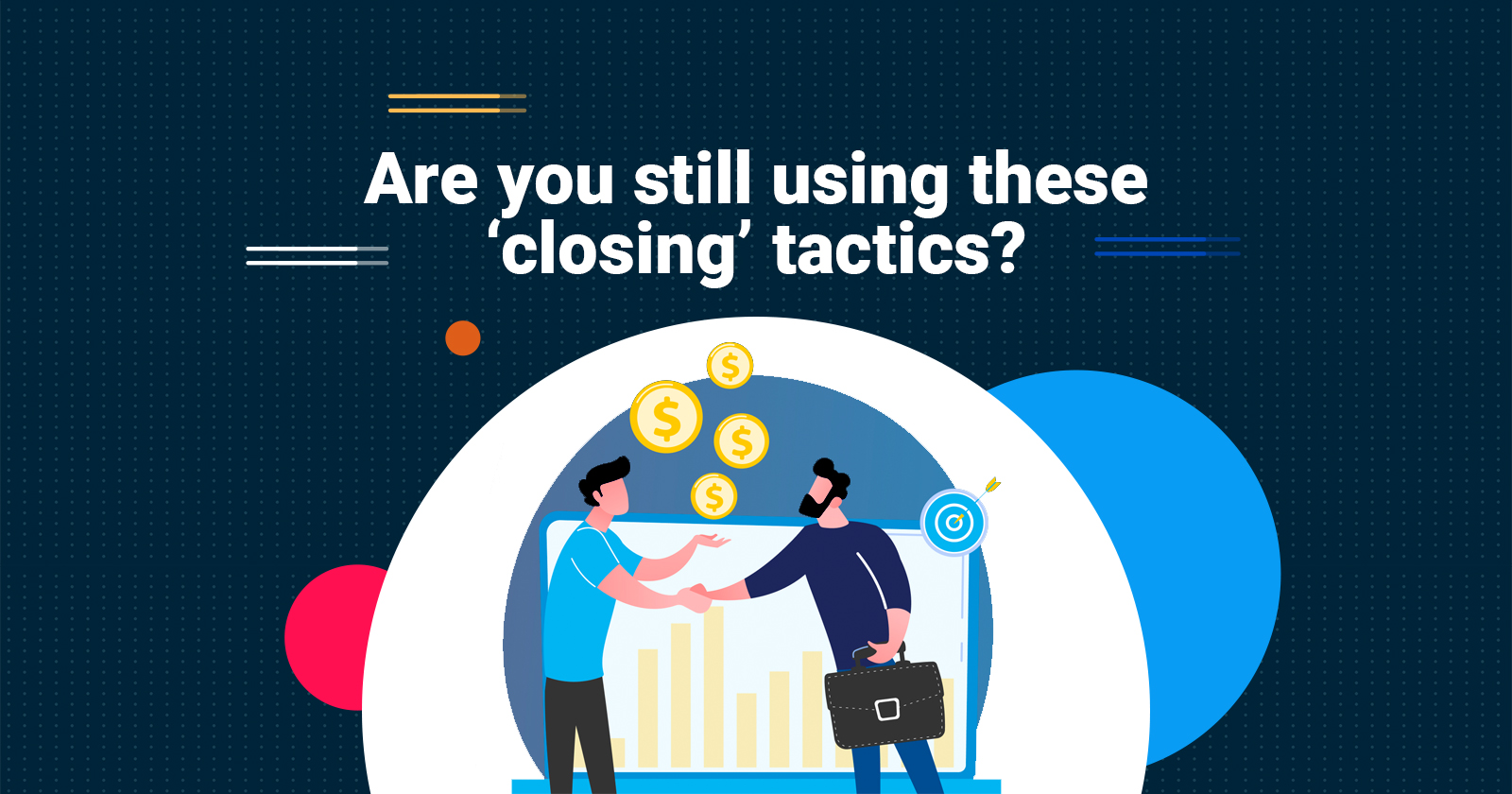
We have seen them in movies… Read: Wolf of Wall Street We have read books and articles about them… But do they really work in our current day and age? What we mean is, with the rise of the internet, technology and tech-savviness, your clients or buyers in general have access to a wealth of information, literally at their fingertips. The role of the salesperson has evolved to be a lot more empathetic and advisory in nature rather than the ‘always be closing’ mode. In this article, we take a look at some traditional sales ‘closing’ tactics and share our take on why they might be not work as well anymore. Some of these are really personal opinions of this writer, wearing the hat of a consumers who buys insurance policies as well… But in all honesty, what we hope to achieve with this article is to have intermediaries take an introspective look at how they conduct business and really, if the conclusion is that all’s good, then great… if not, we hope to have sparked some thoughts to improve… As the very singlish name suggests, this tactic assumes or rushes through the process and jumps straight to the assumption that a client is ready to buy, before they actually say so. While it can be tiring to go through a long education process and the salesperson might feel like they have done a good job in doing so, it would actually make the client feel a lot better if they were asked if they are ready to commit. In this sense, both parties will feel like a proper conclusion has been conducted and a much lower chance of buyer’s remorse happening (which is a bigger pain than anything else). Usually deployed when the client provides timing objections e.g. ‘now’s not a good time to buy’. An example of such a tactic is when the salesperson says something like ‘buy now or later also the same, why hesitate?’ Showcase empathy for the client by constantly checking on any form of hesitation on the part of the client. Not only will the client appreciate the care shown, it also helps the salesperson gain better insights to their client’s needs. Check out this article on how to handle timing objections! The salesperson might share with clients how they are ‘one deal’ away from achieving his/her target and that ‘one deal’ sits with the client. While this might work, it really detracts from the salesperson’s value to the client. Essentially, the salesperson is asking the client to buy, for a reason completely unrelated to the situation. No doubt about it. The world of sales is tough and this is a tempting thing to do, but… trust in your own value – and don’t do anything to devalue it. An example of this would be when the client asks, ‘Does policy X cover Z?’ the salesperson responds with a, ‘If yes, will you be willing to commit now?’ If the client is still asking questions, it is probably because they are grappling with the product or policy and its value / cover. This is the salesperson’s chance to provide further value to the client. Do not be afraid to demonstrate your knowledge and value by addressing the client’s questions! — So… what then? In our opinion, and specifically for Insurance intermediaries, the best approach is to gather the requirements of your clients and lay the options for your clients. The fact that you are already speaking to a client means that they have a need that they hope you can help with – be it insurance for the new restaurant, car or business. Understand or gather their requirements and work on sourcing for options that you genuinely feel will fulfill their needs. This is where Surer can come in handy for General Insurance intermediaries. We understand that sourcing for a quote can be a painful and tedious process. So, it is entirely understandable that an intermediary will not move to this step, unless they are pretty sure their clients are up for the purchase. However, with Surer, intermediaries can save 95% of their time quote sourcing because we have streamlined and automated this process. Intermediaries can now leverage Surer to not only close deals, but to serve their clients better, even at the prospecting stage. Essentially, you are doing the legwork on behalf of your clients, but with a supercharged system. The next conversation you have with this client then becomes even more meaningful. Once again, it is the value you bring to the table that ultimately helps with the ‘closing’ not how you manipulate the conversation. — Nothing against cultivating a playbook to help in achieving your sales goals – anyone who has achieved success in any field has some form of technique they master, knowingly or not. However, the role of the salesperson is highly important and often anchors on the client’s trust. I mean, it would be much nicer of a relationship for us to buy from someone who cares. Especially if you look to that person as an advisor – which is how we view our users and insurance intermediaries. Leverage tools to help you be that person the client looks to you, to be… and not use ‘closing tactics’ to manipulate this trust to the detriment of the client. It is fuss-free. No credit card or payment required.The ‘client-haven’t-say’ close
The ‘buy-now-or-later-also-no-diff’ Close
The ‘help-me-leh’ Close
The ‘answer-question-with-a-will-you-buy-question’ Close
Lay the options out for your client and advise them – they need you for this purpose!
Are you an Insurance intermediary? Sign up for free now!
Subscribe to our Telegram channel to get the most insightful articles delivered to you automatically!
